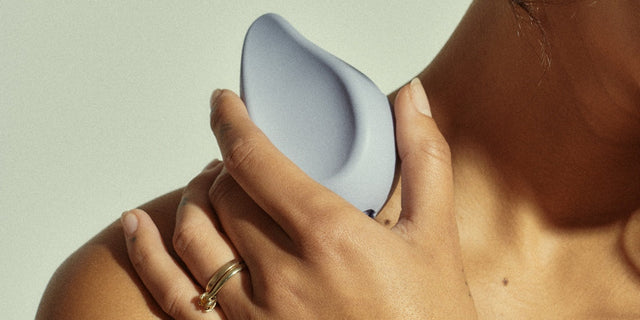Yes, anyone can get their period, trans women included
Menstruation, often referred to as a period, is a part of many people’s lives. Defined as the periodic discharge of blood and tissue from the uterus, menstruation is just one stage of the larger menstrual cycle, which typically takes place over 28 days.
Can a transgender woman have a period? Absolutely. Many trans and gender-diverse people menstruate. Whether you’re a woman, a man, non-binary or agender, your body may menstruate too.
This article explores the different ways trans women get their period and provides some tips on navigating your cycle.
Got a trans woman or trans girl in your life who you want to support? There are some pointers in here for you, too.
Who are trans women?
Everyone’s experience with gender is unique and personal. You’ve probably heard of gender identity, which is all about how you feel on the inside. This is a bit different to gender expression, which is how you show your gender to the world through things like your actions, style and body characteristics.
How does this relate to being trans? Well, trans is a term that can describe people whose gender differs from what was presumed for them at birth. A trans woman is someone who is a woman and who was assigned male at birth.
Note: some trans people see ‘being trans’ not as an identity as such, but more a as history or experience.
Do trans women have periods?
Many trans women have periods. Some trans women don’t have uteruses, so they won’t bleed as part of a monthly menstrual cycle. But the hormonal experience of menstruation can still be very real.
Some trans women undergo gender-affirming treatment in the form of feminising hormones. These hormones can result in a range of physical and emotional symptoms, including:
- Anxiety
- Appetite changes
- Bloating due to water retention
- Cramping
- Tiredness and fatigue
- Listlessness
- Mood swings
These symptoms may occur at the same time each month, just like premenstrual syndrome (PMS). For many trans women, this is their period.
Having a period feels totally normal and fine for many trans women. Some even find it deeply cathartic and validating. But if your period symptoms are upsetting you, chat with your doctor about adjusting your hormonal regime so that it doesn’t trigger a noticeable cycle.
Tips for navigating your period as a trans woman
Here are some top tips for managing your period as a trans woman:
- Track your hormonal cycle: Use a tracker app like Clue to keep tabs on your cycle and any related symptoms. This is a quick and easy way to feel more prepared and in control.
- Wear period underwear: By offering a sense of comfort, freedom and security, period underwear can help you feel comfortable, affirmed and empowered throughout your cycle. Check out our Women’s briefs and All Gender collection.
- Do what makes you feel affirmed: Whether it’s seeing friends, experimenting with different self-care activities or indulging in your fave comfort food, do what makes you feel good during this time. It’s all about embracing who you are inside and feeling comfortable in your own skin.
- Seek support when you need it: Trans women’s periods are not well understood just yet, so you might encounter changes in your body that are seemingly out of the blue. If you ever get worried, consult your doctor.
How to support trans women during their period
Being a good ally to trans women during their period means being respectful, understanding and supportive. Here are some key ways to be there for them:
- Be kind towards the trans women in your life, and acknowledge their experience as women. Respect their names, pronouns and bodies.
- Create a safe space for them to share their feelings and concerns. Sometimes, all we need is a friend who gets it, so listen with an open mind and heart.
- Educate yourself about trans experiences, including menstruation, and help correct misinformation. (TransHub, Twenty10 and local LGBTQIA+ community centres are good places to start.)
- Avoid asking invasive or personal questions that may make someone uncomfortable.
- Practice patience and empathy. Remember, everyone’s experience is unique, so it’s always better to ask questions than make assumptions.
Period care is for everyone
Bottom line is, people of all genders menstruate. Trans women’s periods are just as real and valid as anyone else’s, so whether it’s tracking your hormonal cycle, slipping on some comfy period underwear or checking in with your doc, do what makes you feel supported and affirmed through your cycle’s ups and downs.
For more articles on menstruation, period management and lots more, head to our blog.









